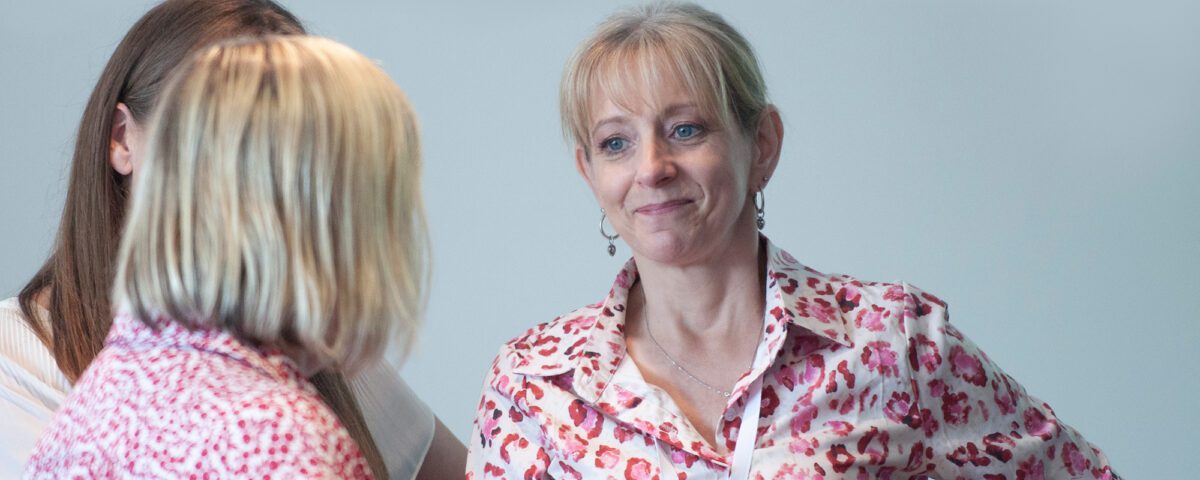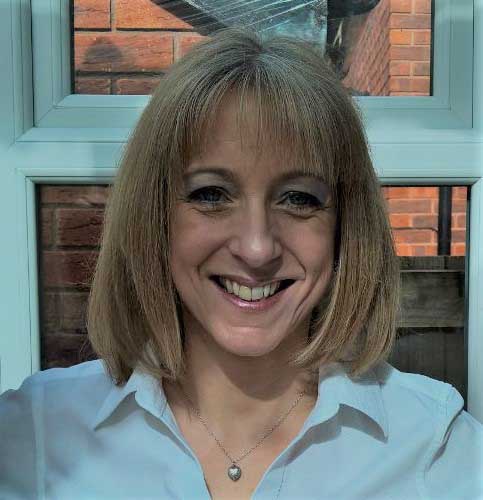I started my love of wound management during my nurse training
The second in the Society's series of blogs reflecting on the personal journey of our trustees and associates in the hope that it inspires you as our followers and membership to embrace the potential for working and progressing in the field of tissue viability

Name
Day job
Senior Lecturer in Tissue Viability at Birmingham City University
Current SoTV roles
Vice Chair for the Society’s education Sub-group and member of the Collaborations Sub-group.
Q1. – When did you realise you wanted to specialise in tissue viability?
I started my love of wound management during my nurse training. As for many healthcare professionals, some patients stick with you. For me, during my training, it was a patient with multiple sclerosis who had a category four pressure ulcer to the sacrum. He had enforced bed rest, which significantly impacted his mental health and, despite repositioning and good wound management, the wound was not healing. It seemed never-ending for him and I felt completely unable to improve his situation. That was 23 years ago, and I believe that was the point at which wound care became “my thing”.
Q2. Can you briefly describe your journey to your current role?
I took a rather circuitous route to where I am now. I started my nursing career on a liver unit and rotated between liver medicine, liver surgery and liver intensive care. There were many dehisced surgical wounds due to the poor healing ability of the patients with liver disease. I became a tissue viability link nurse and attended training sessions provided by the TV team.
Subsequently, I spent 12 years in critical care and moved into critical care outreach and acute pain. In the outreach and acute pain role I was covering all wards, so was out and about meeting and caring for patients with a range of conditions, needs and a variety of wounds causing pain. During this time, I undertook tissue viability modules at the local university which cemented my desire to work in wound management. A tissue viability post became available. The rest, as they say, is history.
I became a lead TVN and decided I needed to further my academic study, and so I commenced and completed my MSc in wound healing and Tissue repair at Cardiff University. This increased my knowledge and broadened my views on so many things wound related. It gave me confidence to apply to be a Trustee of the Society of Tissue Viability because I was keen to be involved in the work that the Society does to improve patient outcomes through education and engagement with its members and the wider wound care community. Since becoming a Trustee, I have been involved in several projects and am honoured to be a part of a passionate and highly experienced group of people driven to improve the prevention and management of skin and wound issues.
I have been a Senior Lecturer in Tissue Viability since October 2020. However, I still practice as a TVN at a local acute trust. I feel it is important to maintain my clinical skills, and as a Lecturer, understand the challenges experienced by TV teams and Healthcare Practitioners in wound prevention and wound management, to be able to tailor my teaching to account for these.
Q3. What do you feel has been your greatest achievement in your career to date?
I think leading an amazing team of Tissue Viability Nurses in a large acute trust. Unfortunately, tissue viability is still often not fully understood by those not working within it and this brings its own difficulties. However, the teamwork and the shared goals and the things that were achieved in a challenging environment, felt nothing less than miraculous at times.
Q4. If you could give your younger self some valuable advice, what would it be?
Do not allow others to belittle your passion and make you doubt yourself. When I made my enthusiasm for wound care known, I had several negative comments, the most derogatory being, “why do you want to be a scab nurse?” I laugh at this now but felt quite deflated at the time.
Be brave, be bold and don’t allow the imposter syndrome to hold you back.















